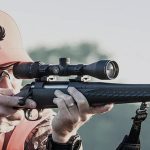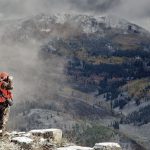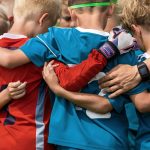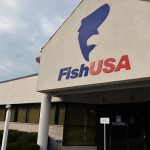Last month, anglers, scientists, environmental groups, state and federal agencies and sportfishing industry representatives met to evaluate how much is known about marine fisheries catch-and-release survival rates and explore ways to improve fisheries management and catch-and-release techniques.
Representatives met from March 15-17, in Atlanta, Ga., for the FishSmart Barotrauma workshop. Barotrauma, a significant cause of mortality for many saltwater fish, most often occurs when deep water fish are unable to adapt to the change in pressure when brought to the surface, making it difficult or impossible for the fish to swim back to the bottom when released by the angler.
“For many years, the sportfishing industry has advocated for finding new and improved catch-and-release techniques to reduce the mortality rate in recreational fisheries,” said American Sportfishing Association (ASA) President and CEO Mike Nussman. “If it wasn't for the significant progress we've made in fresh water fisheries catch-and-release, especially small- and largemouth bass, recreational fishing as we know it probably wouldn't exist. The recent Barotrauma Workshop provides hope for implementing workable solutions to improve the survival of caught and released saltwater fish, improving the health of many recreationally important fisheries. In short, new and improved techniques are good for fish and good for anglers.”
A significant finding of the workshop is the effectiveness of recompression techniques which gradually reintroduce fish to the approximate depth at which they were caught, as contrasted to the more traditional venting procedure in which gases are released from the fish's body. Recompression is a particularly effective West coast rockfish catch-and-release technique.
Other outcomes of the workshop include:
* Guidelines for the release of saltwater fish, particularly those caught at deep depths.
* Recommendations for improving management of fisheries with high release mortality.
* Identification of crucial gaps in research that impede improvements in fisheries management.
The barotrauma workshop is one component of the larger FishSmart effort, a program initiated by ASA and others in the recreational fishing community, to work with anglers and industry to improve marine fisheries catch-and-release survival rate. This phase of the FishSmart project is being funded by the National Oceanic and Atmospheric Administration's National Marine Fisheries Service (NOAA Fisheries) through a grant to the Atlantic States Marine Fisheries Commission. The first phase, which focused specifically on the South Atlantic King Mackerel fishery because of its recreational and commercial importance, was funded through a grant from the Gordon and Betty Moore Foundation.
“We greatly appreciate the commitment that NOAA Fisheries has shown to this vital program,” said Nussman. “The FishSmart project has the potential to provide a wealth of information to alleviate some of the problems we're seeing in fisheries that suffer from high catch-and-release mortality, such as red snapper. We look forward to continuing this partnership with NOAA Fisheries and helping ensure the funding for this program continues.”
The full report from the workshop is in the process of being prepared and will be available in the near future. General guidelines and background documents on the workshop are currently available at www.fishsmart.org.












